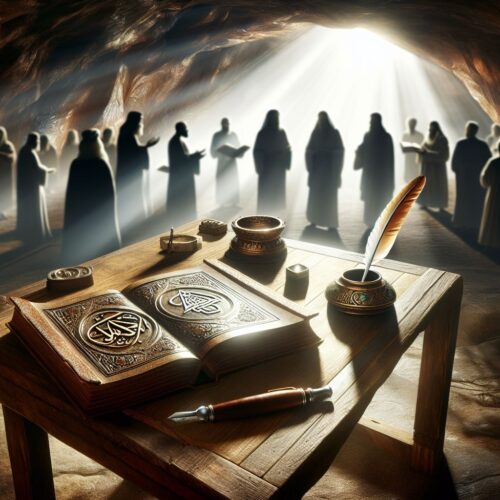Monotheism, the belief in one singular god, has deeply influenced the development of political ideologies and systems throughout history. The intertwining of monotheistic beliefs with political governance has led to a complex and often controversial relationship, shaping societies and influencing decision-making processes. In this exploration, we delve into the intricate connections between monotheism and politics, shedding light on how religious beliefs can impact governance and public policy.
Monotheism and Political Authority
The concept of monotheism inherently places importance on the idea of a supreme deity who holds ultimate power and authority. In many monotheistic religions such as Christianity, Islam, and Judaism, God is seen as the ultimate source of morality and justice. This belief in a higher power has often been used to legitimize political authority, with rulers claiming to rule by divine right or with the blessing of the deity.
Throughout history, monarchs and political leaders have justified their rule by invoking religious principles and divine sanction. In some cases, this has led to the co-option of religious institutions for political gain, blurring the line between the sacred and the secular. The notion of a divine mandate has been used to justify conquests, wars, and the imposition of laws based on religious doctrine.
Religious Values and Public Policy
Monotheistic beliefs often come with a set of values and ethical principles that can influence public policy and governance. For example, the Ten Commandments in Judaism and Christianity provide a moral framework that has influenced legal systems in many countries. The prohibition of murder, theft, and adultery, as well as the injunction to care for the poor and marginalized, have shaped laws and policies in various societies.
In contemporary politics, religious beliefs continue to play a significant role in shaping public policy debates. Issues such as abortion, same-sex marriage, and euthanasia often spark fierce debates rooted in religious beliefs about the sanctity of life and the nature of morality. Politicians frequently invoke religious values to garner support for their policy positions, appealing to voters who share their faith.
Challenges and Controversies
While monotheistic beliefs can provide a moral compass for governance, they also present challenges and controversies in the political sphere. The imposition of religious values on a diverse population can lead to tensions and conflicts, undermining the principle of religious freedom and pluralism.
Moreover, the conflation of religious beliefs with political power can result in the marginalization of minority groups and the infringement of individual rights. Theocracy, or the rule of religious leaders, has been associated with authoritarianism and the suppression of dissent, raising questions about the compatibility of religious authority with democratic governance.
Conclusion: Navigating the Intersection
The intersection of monotheism and politics is a complex and multifaceted terrain, marked by a rich tapestry of historical influences, ethical dilemmas, and political challenges. As we navigate this intricate landscape, it is essential to critically examine the role of religious beliefs in shaping governance and public policy, while upholding the principles of equality, tolerance, and respect for diversity.
By engaging in open and respectful dialogue, we can foster a deeper understanding of the complexities inherent in the relationship between monotheism and politics, paving the way for a more inclusive and ethical approach to governance. As we ponder the divine mandate and its implications for political authority, let us strive to uphold the values of justice, compassion, and human dignity in our collective pursuit of a just and harmonious society.
